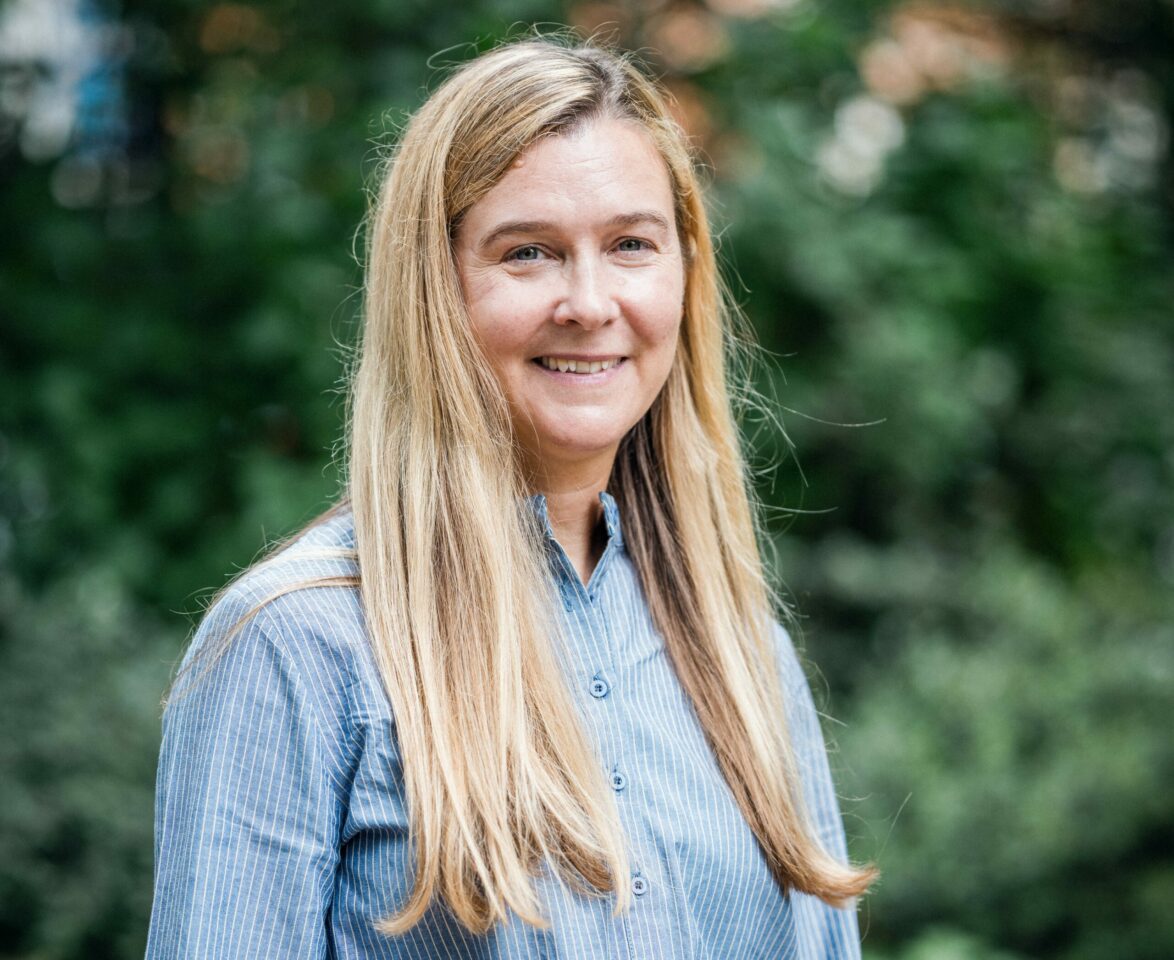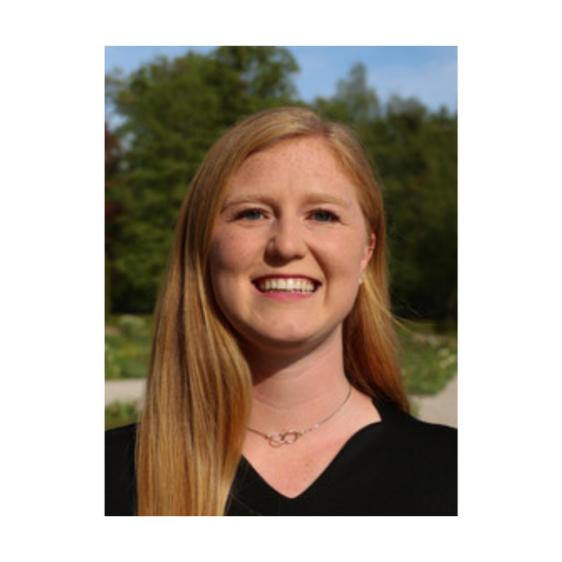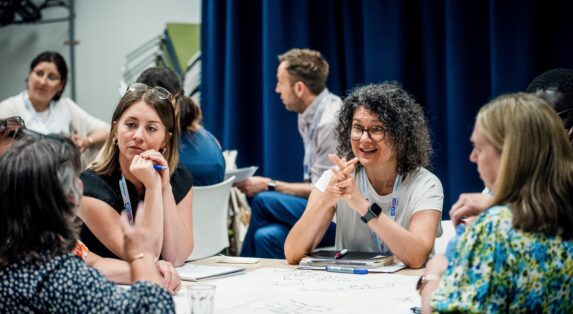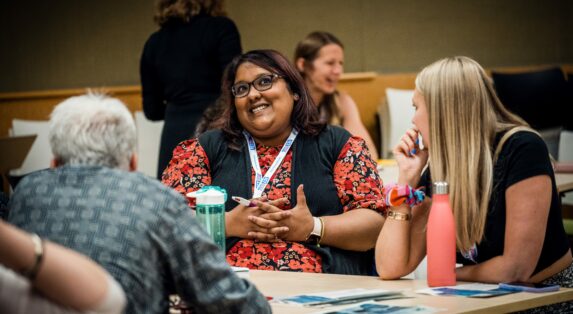
Teaching Citizenship: How Can We Prepare the Next Generation for the Complexities of Today’s World?
ACT's Chief Executive joined two fellow Salzburg Global Fellows to share their global perspectives on citizenship
-
ACT’s Chief Executive joined fellows from across the globe to share expertise and experiences of building democratic citizenship education.
-
Fellows from the US, Canada, Finland, and the UK share the belief that citizenship education is universally important in preparing youth for modern challenges.
-
Across contexts, there is a need for democratic school governance, well-trained teachers with access to proper resources, and opportunities for students to engage as active citizens in their communities.
-
Citizenship education serves as a building block in educational transformation by cultivating critical thinking, active engagement, and democratic participation.
Are our schools adequately equipping the next generation with the skills to understand the world around them? The importance of citizenship education in enabling young people to navigate modern challenges is increasingly evident.
Three education experts, including ACT’s Chief Executive, Liz Moorse, contributed their perspectives on citizenship education, drawing on experiences from the US, Canada, Finland, and England, during a Salzburg Global Center for Education Transformation program. Despite diverse educational systems and cultural contexts, all three Fellows agreed that citizenship education is vital in modern-day education but needs more effective implementation.
Dr. Joel Westheimer, the university research chair in democracy and education at the University of Ottawa, differentiates democratic education into three categories: “teaching about democracy”, meaning the facts about how government works; “teaching for democracy”, giving students the attitudes, skills, and knowledge they need to be engaged citizens; and “teaching democratically”, meaning that students are involved in shaping their curriculum.
A majority of civic education in both Canada and the US is focused on teaching about democracy, which Joel argues is insufficient to foster robust democratic citizenship. According to him, “what we need more of are programs and approaches to civic education that teach for democracy, [and] that involve students in being engaged in projects that give them the skills they need and the desire to participate in democratic life.” These skills include critical thinking, asking difficult questions, dealing with multiple perspectives, and compromising.
Joel criticized how the “curriculum has been narrowed because of standardized tests to focus exclusively on math and literacy”. This results in teachers paying less attention to other subjects like social studies, science, and citizenship education. To counter this, he proposed that we “reduce our obsession with measuring and accountability, and free up teachers at local settings to pursue the kinds of teaching and pedagogy that’s consistent with developing citizenship skills, attitudes and knowledge.”
In contrast, Kristina Kaihari, the counselor of education at the Finnish National Agency for Education, described Finland’s longstanding commitment to citizenship education, which has been a compulsory subject for over a century. Finnish students are encouraged from a young age to engage in democratic school governance by expressing opinions on school decisions and participating in student councils. This approach, combined with the freedom given to teachers in choosing teaching methods and course content, exemplifies Finland’s democratic, transparent, and decentralized education system.
Liz Moorse, the chief executive of the Association for Citizenship Teaching (ACT) in the UK, highlighted that as increasingly more young people are taking activist stances on current issues, “we need to support them in taking those issues forward in a constructive way”. To this end, “schools are realizing that it’s better to get involved and to provide the right support to those students rather than to step back”. This necessitates a renewed focus on active citizenship, in which students have opportunities to get involved in projects in their communities to tackle issues ranging from homelessness to climate change.
Active citizenship projects are also present in the US and Canada, where approaches that “engage students in collective projects hold the most promise for teaching a democratic form of citizenship,” Joel explained. Service learning is a great example of how students can “do work in the community that’s specifically tied to the curriculum and reflect on that work to see how it plays a role in their development as democratic citizens”.
It is also important that teachers are equipped with the competencies to create a democratic culture in the classroom. This is the case in Finland, where teachers are very well trained both theoretically and pedagogically. According to Kristina, “the most important thing in the school curriculum in K-12 education is to foster a participative school culture and democratic school governance everywhere”.
Through citizenship education, Kristina noted that “it is very important that every citizen gets a wide awareness about society [and] how it is functioning, about the whole system, politics, and how every citizen can participate and have an impact on society”. Through its National Democracy Program 2025, even Finland is still working to find new ways to make its education system more democratic.

In the UK, the Association for Citizenship Teaching (ACT) supports teachers with curriculum design, pedagogy, and subject knowledge in citizenship education. Liz described the resources this education charity provides, including “core model curricula for citizenship” and “deliberative classroom work”, which helps teachers use democratic dialogue in the classroom to “build a greater understanding of a wide range of perspectives on difficult issues and to help children move towards a notion of consensus building”.
Citizenship education was established as a separate national curriculum in England in 2002 based on a belief that “all children and young people needed to be reengaged in democratic politics to be taught about democracy as well as for democracy,” explained Liz. The idea behind it was “to transform our society, to reenergize our democracy, [and] to make our democracy a more inclusive, people-orientated democracy where young people and older people feel a genuine sense of participation and voice.” The aspiration behind citizenship education continues to be creating a better society through a strong democracy.
However, there is still room for improvement in national-level policy support, resources, and training for citizenship education teachers. Liz noted, “We expect a lot of citizenship teachers, and we need to do more to help them. If we do that, we will create transformation because we know citizenship education really does work.” Citizenship education serves as a building block in educational transformation by shifting the focus from mere factual knowledge to the cultivation of critical thinking, active engagement, and democratic participation, fostering a more dynamic and inclusive learning environment.
As we strive to empower the next generation, it becomes evident that educating active, informed, and engaged citizens goes beyond traditional teaching methods. The call to action for educators and policymakers alike is to embrace innovative and inclusive approaches that not only teach about democracy but actively involve young minds in the democratic process of education.
The Salzburg Global Fellows featured in this article attended the Salzburg Global Center for Education Transformation program on “Civic and Civil Education: Identity, Belonging and Education in the 21st Century”. Along with other Fellows from educational spaces worldwide, they gathered at Schloss Leopoldskron from November 14 to 19, 2023, to rethink the role that education can play in tackling issues like declining democracy, misinformation, and polarization, by considering how to support citizens with skills and behaviors to live harmoniously.
“Civic and Civil Education: Identity, Belonging and Education in the 21st Century” is part of the Education for Tomorrow’s World series, which informs new approaches to learning, skills, and inclusion for radically different societies.
This blog was originally published on the Salzburg Global website on January 24 2024, and appears on the ACT website with permission from the author. To view the original publication on the Salzburg Global website, click here.

About the author
Audrey Plimpton is a communications associate at Salzburg Global Seminar. At Schloss Leopoldskron, Audrey produces both written and multimedia content about the programs and participants in order to convey the wider impact of Salzburg Global Seminar. She is also responsible for writing features on a wide range of topics for SalzburgGlobal.org, program newsletters, program reports, and external media partners’ publications. Audrey holds a B.A. in political science and a B.A. in German studies from Davidson College, US. She additionally holds an M.A. in international relations from LUISS Guido Carli University, Italy, and an M.A. in European Union studies from the University of Salzburg, Austria. Audrey is originally from the US and is based in Salzburg.


